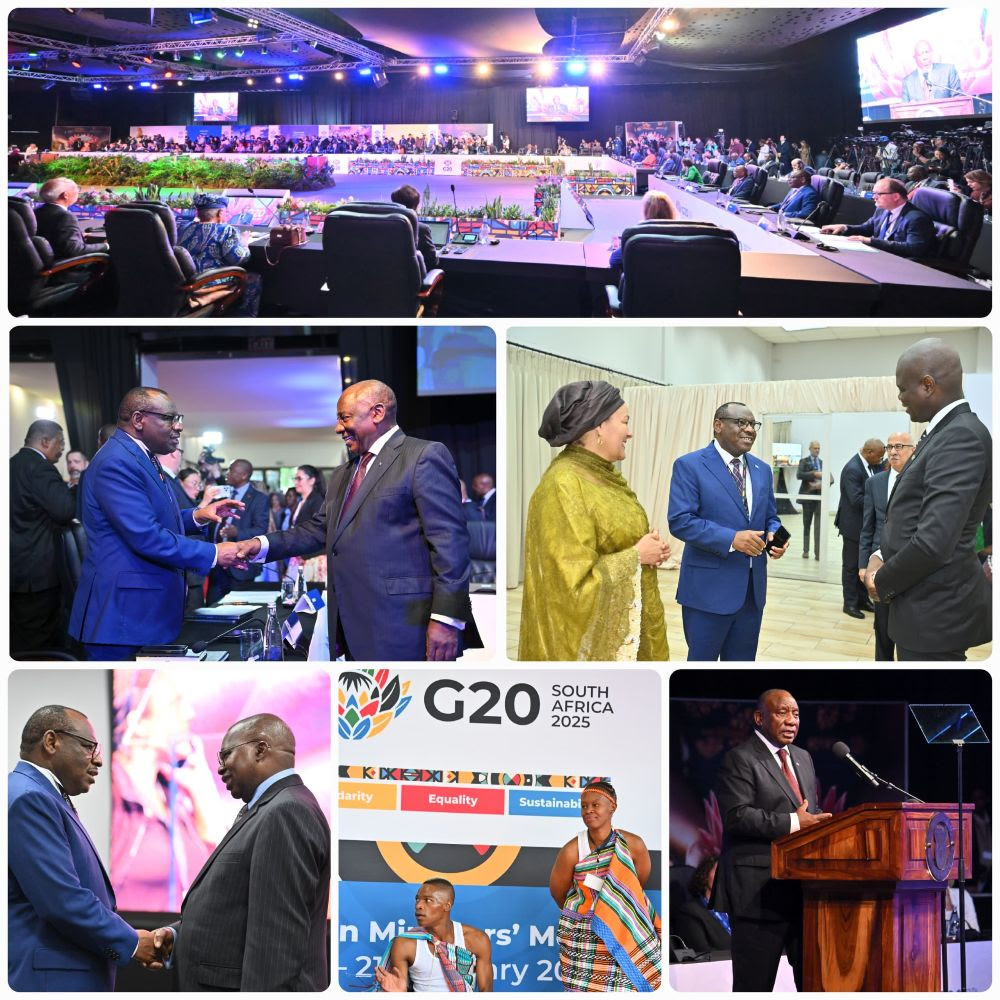
By Jeff Kapembwa
Africa stands at the threshold of failing to fight hunger, reface new and rundown infrastructure and rebuild economies devastated by escalating debt burden, international and local headwinds and must strive to fight head on, the climate change which is the ‘Elephant in the Room’.
Africa faces substantial economic losses due to climate change, with projections estimating damage costs ranging from US$290 to US$440 billion, and experiencing a loss of 5 to 15% of its GDP per capita growth annually.
African countries an estimated $9 billion induced by the loss and damage suffered and spend over 5-15% of their GDP per capita building it back, according to research undertaken three years ago by experts.
The loss and damage costs in Africa due to climate change are projected to reach at least US$290 billion (in a 2 °C warming scenario), fueling concerns at the rate the continent was waning.
The United Nations, pioneers of the fight against climate change and leading lobby agent for sustained climate financing to insulate the continent warns against complacency by African leaders in finding durable and lasting solutions to the rate of devastation of the humanity and the environment on the continent, a call for joint and concerted efforts to redress the effect of the crisis.
Claver Gatete, the Executive Secretary of the Economic Commission for Africa (UNECA), in a clarion call during the just ended G20 meeting hosted by South Africa, the host presidency, called for unison among the 54-member states in resolving the high debt portfolio, a call for a resolution template.
Addressing delegates at various high-level sessions of Ministers of Foreign Affairs and of Finance from Gatete calls for a unified voice to address myriad of problems.
These factors, include poor infrastructure facing Africa which has eluded the continent, an opportunity to maximize potential endowed in countries to develop the fledgling economies, many recording a paltry 2-5 percent of Gross Domestic Product per annum.
Gatete is desirous to revolutionise Africa to overcome its myriad of challenges stifling growth on the continent despite various opportunities to growth without aid.
The escalating debt burden serves as a warning to the continent to re-asset its priorities and its voice in global economic governance, especially at the when its influence is vital for addressing pressing issues.
Happy with South Africa assuming Presidency of the G20, after years of European dominance urged all member states to unite and amplify the continent’s voice on the international stage, and give hope to the majority populace on the continent to devise a pathway out of economic quagmire that has dwarfed Africa’s growth prospects.
“South Africa’s leadership during the G20 presents a monumental opportunity for Africa to amplify its voice on the international stage, articulating the aspirations of approximately 1.5 billion Africans.”
He emphasized the importance of securing a prominent role for the continent in global economic discussions to navigate its complex economic landscape effectively.”
UNECA’ stressed its desire on Africa’s independence from the ‘nagging’ debt burden heightened by COVID 19 and climate change which had by two years ago hit an all-time high $1.16 trillion, accounting for 60% of the continent’s total public debt, with the average debt-to-GDP ratio surging to 71.7%.
Estimates, according to experts show that Total External Debt two years ago rose to 1.16 trillion.
Debt-to-GDP Ratio: the average debt-to-GDP ratio in Africa has surged by 39.3 percentage points since 2008, hit 71.7% during the year under review. External Debt as a Percentage of Total Public Debt: External debt accounts for 60% of the continent’s total public debt.
• Factors: increased borrowing, higher borrowing costs, reduced export revenues, slow economic growth, and unexpected expenses (including those caused by COVID-19) have all contributed to this rise.
• Debt Service Payments: In 2024, Africa’s external debt service payments are expected to reach nearly $90 billion, further limiting investments in critical areas.
• Debt Structure Shift: African countries have increasingly turned to private debt (commercial debt, including bonds and loans from private entities) rather than bilateral debt, with commercial debt now making up 43% of the total external debt.
Gatete seeks intervention on the issue of debt sustainability as most country drop into the Highly Indebt Poor Country (HIPC) status and many, devoid of assertive action, are seeking to stagger their indebtedness (debt restructuring) to secure an air of relief, a threat to the future generation.
An estimated 20 African countries, Gatete notes, are grappling with debt distress and seek the establishment of the a fair debt resolution framework.
This, arguably, aligns with the development needs of the countries on the continent. UNECA seeks a fair share of the debt burden and urges all players to advocate for robust advocacy to secure financial solutions that foster growth than stifle it.
The raging climate impasse, Gatete laments was a burden on the continent and there is need for unhindered access to climate financing. He stressed the essence of developed countries, mainly polluters of Green House Gases to fulfil the US$100 billion pledged to combat the vice
“This financial support is crucial for African nations to mitigate the detrimental effects of climate change on their economies and societies,” he told Ministers of Finance. It was vital for African countries to increase energy uptake, a
prerequisite for the continent’s economic transformation.
Africa should endeavor to leverage its abundant renewable energy resources to create sustainable jobs and drive economic growth. “The interconnectedness between energy access and economic development is vital for fostering resilience and progress across Africa,”
Africa holds about 30% of the world’s mineral reserves but the rampant and unabated exporting of unprocessed or semi-processed minerals was depriving the continent of the direct foreign investment.
There is dire need for setting up regional value chains to promote local beneficiation, industrialization, and technology transfer, which are essential for achieving sustainable economic development.
He emphasized the urgent need for coordinated efforts to address Africa’s challenges while pursuing its aspirations on the global stage.
